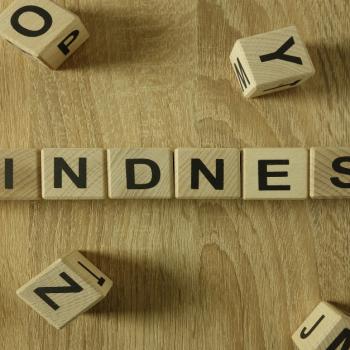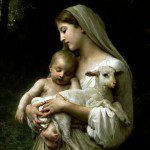How did you choose these twenty-five books?
The book is a Renovaré Resource, a line of books that we have been developing with HarperOne for just about twenty years. So Renovaré has a pretty extensive network of users and collaborators. We polled these folks for their top five books that they think everyone should read and a little over two hundred people responded. We then assembled an editorial board for the project with notables like Richard Foster, Dallas Willard, Phyllis Tickle, Richard Rohr, John Wilson, and a few others. The editorial board began with the top sixty books from the poll of our constituency and through a process of conversation and voting they narrowed the list to twenty-five books. And that did it.
Why isn't the Bible on the list?
Every Christian that can read should read the Bible. It is the top book on every list. We felt this so self-apparent that we didn't need to include it as one of the twenty-five.
Why does the list only include dead authors?
A book needs to stand the test of time before it can be considered a "classic" that everyone should read. Will its notoriety outlive its author by two or three or more generations? Will it speak to the cultural concerns of the future? Will the Church and individual Christians need its wisdom 50 or 100 years from now? These questions cannot be answered, of course, for a book by any author still writing. So the editorial board simply decided to exclude living authors. That put, we did include a book by Henri Nouwen, who died in 1996. This may have been a bit premature, but we felt that Nouwen's work is vital for understanding the unmitigated, ever-available grace of God. That is a topic that speaks to any age.
Why so many Roman Catholic authors among the twenty-five books?
Well, of course, there was only one church before the great schism of 1054, which led to naming the Western church as Roman Catholic and the Eastern church as the Orthodox Church. Nevertheless we westerners tend to think of everything before the Protestant Reformation as Roman Catholic, so that makes the list seem a bit stilted when you combine pre-1054 titles with the more modern Roman Catholic writings. In any case, it seems that for some reason in the 13th to 17th centuries there was this amazing outbreak of mystical theology in Western Europe; from this we have the writings of Teresa of Avila and Julian of Norwich and The Cloud of Unknowing and more. These years make up about a third of the list and certainly help bend it in a Roman Catholic direction.
Which of the authors is the most difficult to understand for modern readers?
While not necessarily the best for a reader getting into 25 Books, I think the first selection in the book, On the Incarnation by St. Athanasius, is the most difficult. It is one of the first works of orthodox theology and, while the topic is absolutely vital for his time and ours, it is a dense read.
Of the twenty-five do you have one that is the most important, that is a passageway for the other books?
That's a tough one as they are all so good and each offers a different pathway for Christian formation and discipleship. But, for me, I consider The Imitation of Christ a good first step and door opening to the rest. It is squarely on the topic of Christian formation, the chapters are short (almost like a modern devotional), over the past six centuries it has more copies in print than any other book excepting the Bible, and it is a pretty easy read. It should still be read reflectively as the ideas are compact, but it is not difficult and contains all the major discipleship themes.
Is there a theme that runs through all the books?
Becoming like Jesus. That is the goal of the Christian life.
What were some of the books that almost made it but didn't?
I lobbied hard for Dietrich Bonhoeffer's Life Together but the editorial board chose his The Cost of Discipleship instead. The Little Flowers of St. Francis is a notable exception, especially since editorial board member Richard Rohr is a Franciscan. And you would think that The Journal of George Fox would have made it because of Richard Foster's involvement (Fox and Foster are both Quakers, and Fox was the founder of the movement), but Richard was able to let it go quite easily.
In the book you suggest 25 Books is good for group study? How do you use it in a small group?
We all need encouragement for our life of discipleship in a culture, even a Church culture, that is too often indifferent. So reading 25 Books with a group of friends and disciples is a good idea. You could read the book through one chapter at a time with small group meetings and discussion in between from start to end. Or you could read the chapters until you hit upon a book that you would really like to stick with for a while and read that book, for instance The Imitation of Christ, in total and then resume your reading of 25 Books. Or, if you are really taken by the project, you could read each book in the list in its entirety using the corresponding chapter in 25 Books as a guide and encouragement. I hope to do the latter in the near future and make a three to four year project of it (though I can't imagine reading all sixteen or so volumes of Calvin's Institutes and the five volumes of the Philokalia).
Would 25 Books make a good holiday gift?
Probably not for your kids or your atheist uncle-unless you're being evangelistic with your gifts for your uncle this year. But for any Christian that is committed to a lifetime of discipleship I think it would make a tremendous gift. It could give them guidance for a multi-year discipleship experience.
Return to the Patheos Book Club for a blogger roundtable discussion of 25 Books Every Christian Should Read, as well as to read a book excerpt.




